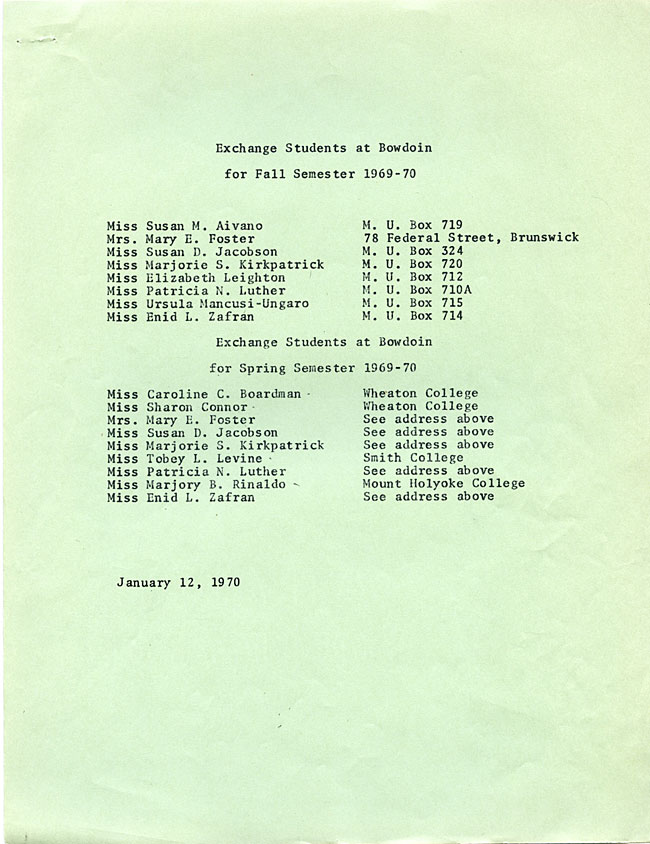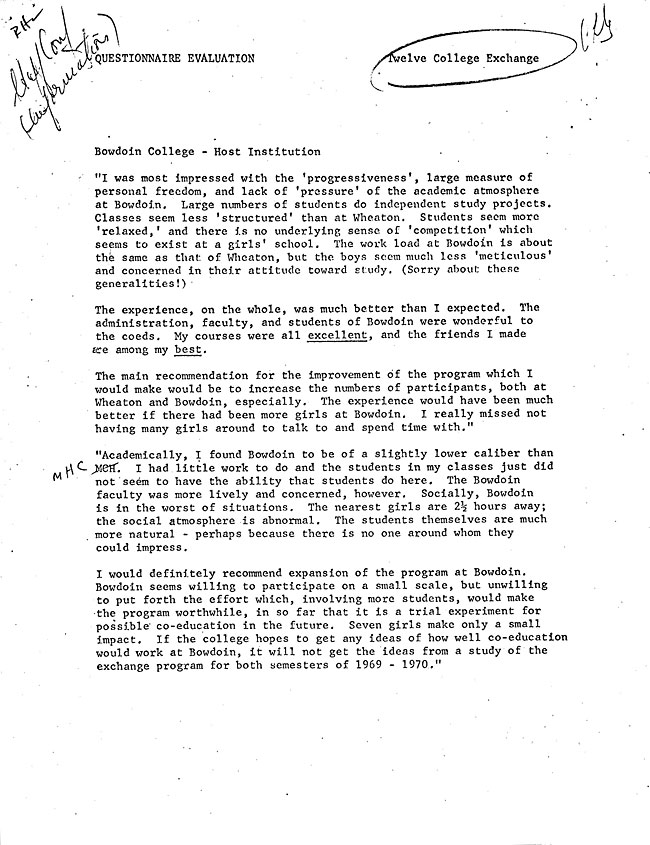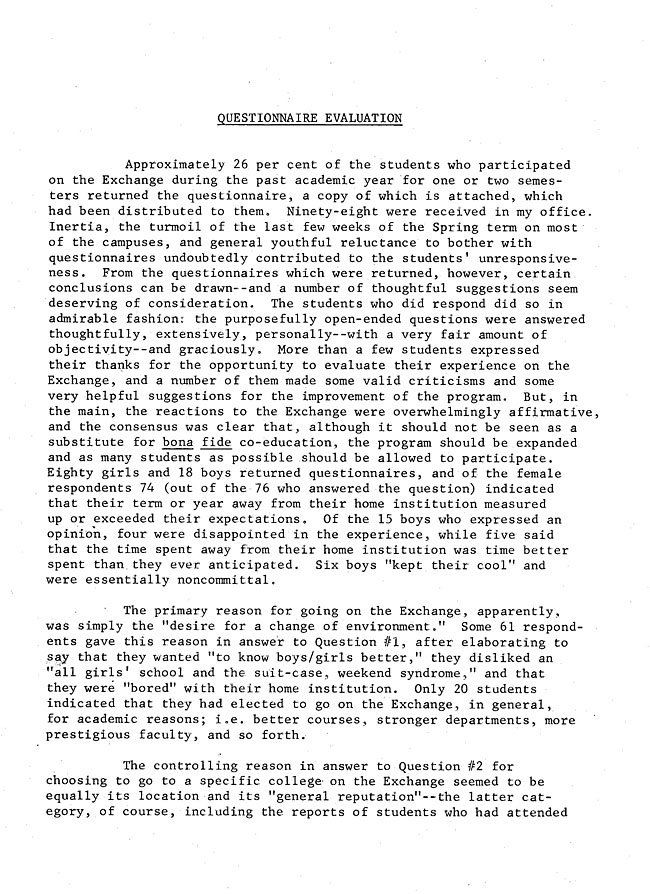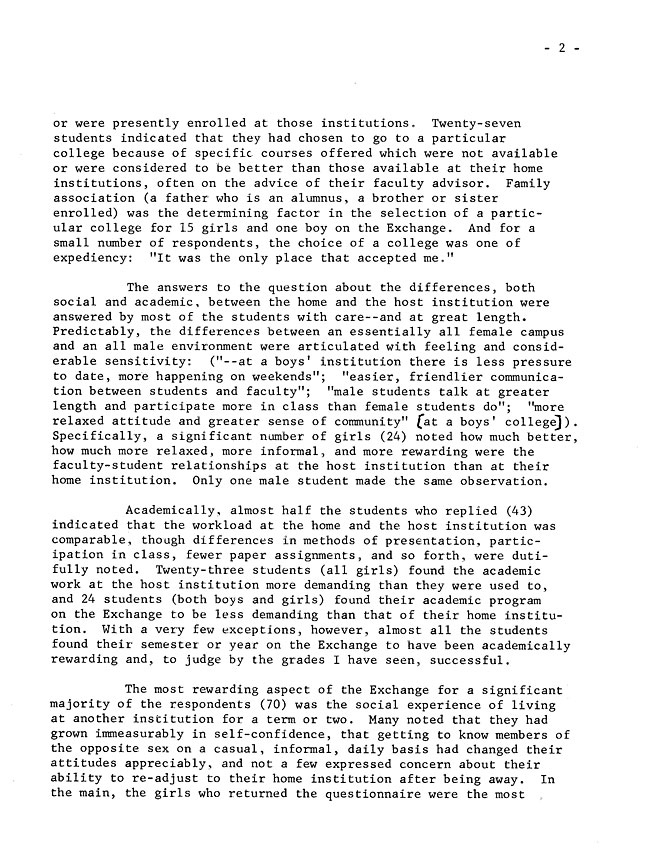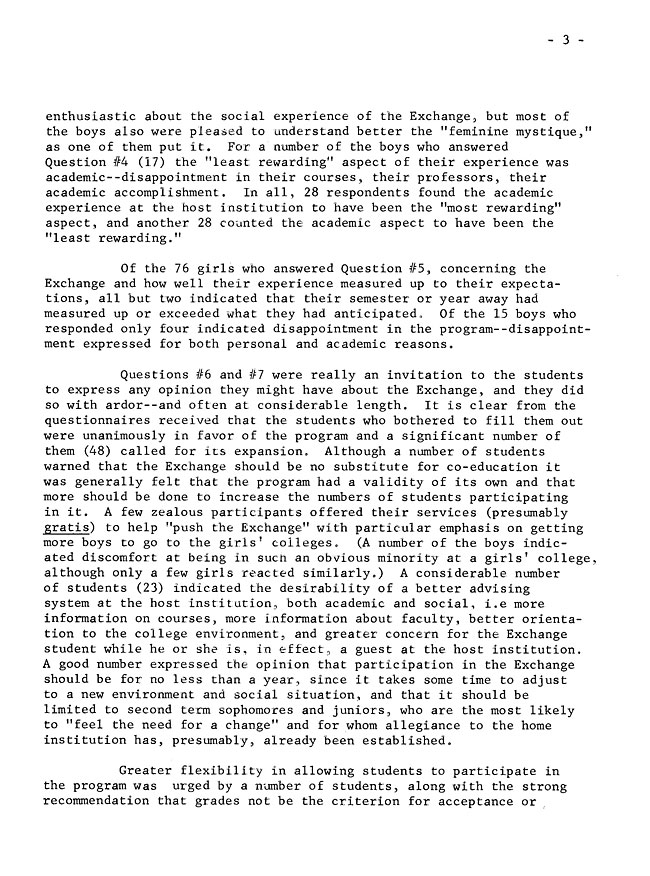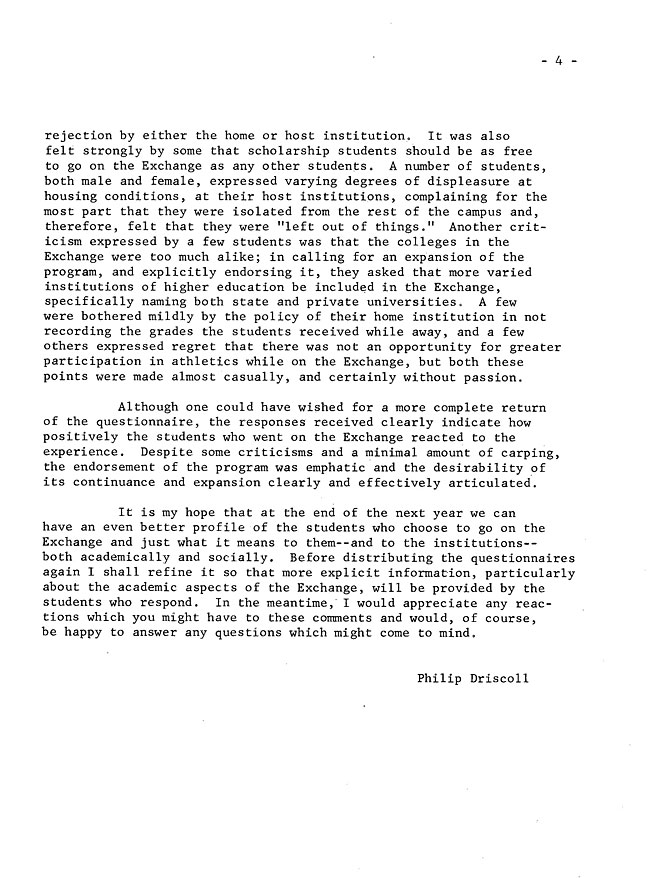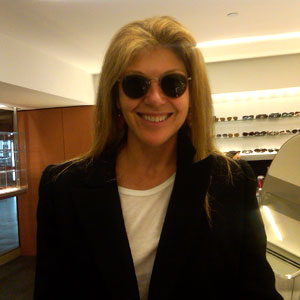In the academic year of 1969-1970, Bowdoin College opened its doors to a program called the Twelve College Exchange. Students from Bowdoin as well as Smith, Amherst, Connecticut College, Dartmouth, Mount Holyoke, Smith, Trinity, Vassar, Wellesley, Wesleyan, Wheaton and Williams had the option to spend a semester or year at another institution within these twelve. The Exchange at Bowdoin was meant to introduce coeducation in an effort to see if men and women could co-exist on this small campus.
The first year Bowdoin participated, twelve female students chose to study at Bowdoin for either one or two semesters (Document GB, 9). A year later, in the fall of 1971, Bowdoin began to admit women into all classes. A grand total of 147 women came to the Bowdoin campus in order to take advantage of this newly coeducational institution. 64 women were admitted as first-years, expected to graduate in 1975, 29 were junior year transfers that would graduate in 1972, 39 were a part of the Twelve College Exchange and 15 were Special Students according to the November 1971 Alumni Magazine.
